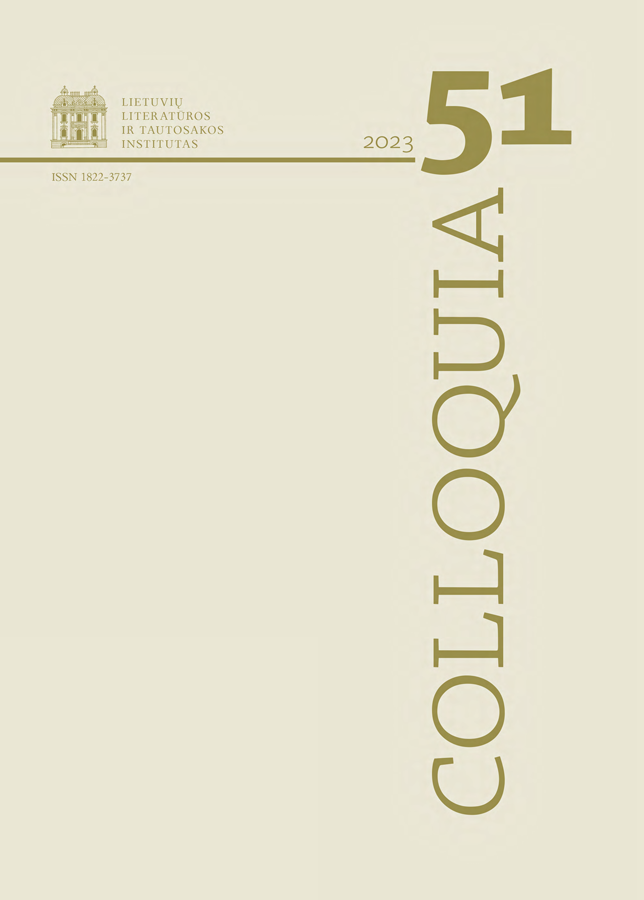Magiškasis realizmas sovietų okupacijos metais: Zigmunto Skujinio atvejis
Santrauka
A manifestation of magical realism in Latvian literature under the Soviet occupation was affected by literary and theoretical works available exclusively for the elite of the Soviet Union and publications in exile. In this article,1 the author focuses on the translations of literary works related to magical realism, available in Latvia during the Era of Stagnation, and their impact on the works of Latvian writers. The case study covers the work of Latvian writer Zigmunds Skujiņš, and particularly his novel Gulta ar zelta kāju (The Bed with a Golden Leg, 1984), one of the most essential Latvian novels written in the 1980s and also the most popular. Some critics have accented novel’s similarities with Gabriel García Márquez’s Cien años de soledad (One Hundred Years of Solitude, 1967) in the composition and poetics of the magic of the novel. In the novel written on the threshold of Latvian national independence, Skujiņš formally accepted Soviet modernity, though he was keen to follow and explore the paths that led to it, looking for the roots of modernity in the history of the Latvian nation and not the new order brought by its Soviet colonizers. A bestseller, the novel allowed Skujiņš to express essential ideas of non-violent resistance in colonial situation.
Atsisiuntimai
Skaitomiausi šio autoriaus(ų) straipsniai
- Dalia Satkauskytė, Šiuolaikinė literatūros kritika: demokratizacijos iššūkiai , Colloquia: T 51 (2023): Colloquia
- Giedrė Ivanova, Muzika Igno Šeiniaus kūryboje: keli akordai , Colloquia: T 49 (2022)
- Ieva Šakelaitė, Emancipuojanti poezija: skaitymai prie Žemaitės kaip feministinis artivizmas , Colloquia: T 52 (2023): Colloquia
- Iveta Leitane, Gastropoetika tarpukario Lietuvos jidiš literatūroje: ankstyvoji Moišės Kulbako (1896–1937) kūryba , Colloquia: T 49 (2022)
- Jūratė Jasaitytė, Išsaugoti šokį: R. M. Rilke’s rūpestis daiktų sauga ir jo atspindžiai lietuvių poezijoje , Colloquia: T 51 (2023): Colloquia
- Jurgita Žana Raškevičiūtė, Asmuo ir Holokaustas Icchoko Mero romane Lygiosios trunka akimirką , Colloquia: T 39 (2017)
- Brigita Daugėlaitė, Kazys Boruta sovietinio saugumo stebėjimo byloje , Colloquia: T 52 (2023): Colloquia
- Justina Sinkevičiūtė, Virginijus Gasiliūnas, Dalia Satkauskytė, Irena Balčiūnienė, Manfredas Žvirgždas, Giedrė Kazlauskaitė, Šiandieniai Vinco Mykolaičio-Putino vertinimai , Colloquia: T 51 (2023): Colloquia
- Jānis Oga, Magiškasis realizmas sovietų okupacijos metais: Zigmunto Skujinio atvejis , Colloquia: T 51 (2023): Colloquia
- Laima Laučkaitė, Žydiškojo Vilniaus ikonografija Pirmojo pasaulinio karo metais , Colloquia: T 48 (2021)




